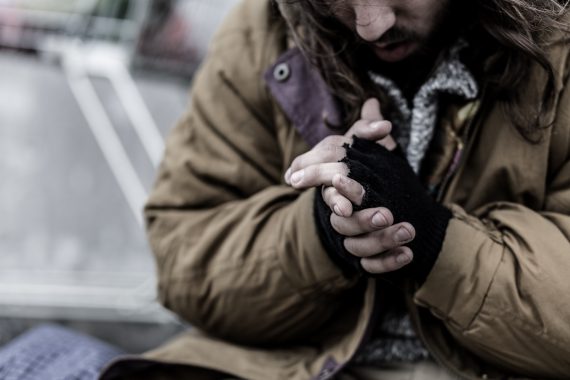Government must solve poor GP access for patients without fixed address, says charity

A charity has written to health secretary Matt Hancock to urge the Government to address GP access issues for people who do not have a fixed address, such as those in the Traveller community.
The letter follows research conducted by the charity – Friends, Families and Travellers – which found that over half of GP practices contacted would not register a patient without a fixed address or proof of identity.
The research, published this week, involved contacting 50 GP practices, each of which had been rated ‘good’ or ‘outstanding’ by the CQC for their work with ‘people whose circumstances may make them vulnerable’ and posing as a patient who wished to register but did not have a fixed address or proof of identity.
The charity found:
- 24 of the 50 practices would not register the mystery shopper as either a temporary or permanent patient
- 17 would not register people without proof of identification
- 12 would not register people without an address
- One said they would only register people online
- Two never picked up the phone, despite multiple calls on different days
In the letter to Mr Hancock, the charity wrote: ‘Almost half of GP practices surveyed in England are routinely refusing to register patients at high risk of poor health because they do not have a fixed address or do not have proof of identity. The first guiding principle of the NHS is that it provides a comprehensive service, available to all.’
The letter then called for a taskforce to drive recommendations, including that NHS England should develop a clear understanding of why GP practices may be reluctant to register certain patients and ensure that appropriate incentives and deterrents are in place to address this.
The CQC should also redesign the ‘people whose circumstances may make them vulnerable’ section of the inspection report, it said.
Friends, Families and Travellers communications and health policy coordinator Sarah Sweeney said: ‘The communities affected by this issue are caught in a catch 22 where they are both at high risk of poor health and also find it much harder to access healthcare.
‘We want to work with the Department of Health and Social Care and with the CQC to address longstanding and stubborn issues around access to primary care so that once and for all everyone can access the healthcare they need.’
In 2015, NHS England guidelines established that GPs must register patients who can’t present evidence of a permanent address within the practice’s boundaries, including people who are living on a boat or staying long-term with friends.
RCGP Chair Professor Helen Stokes-Lampard said: ‘We understand that this can sometimes cause confusion for some practices, particularly in terms of registering, deregistering and reregistering more transient patients – but the consequence of not doing this can mean patients, often in vulnerable and disadvantaged groups, lose their access to essential care and services, and that isn’t something that any of us want.’
BMA GP committee chair Dr Richard Vautrey said: ‘Everyone in England should be able to register with a GP practice and it is particularly important that vulnerable patients, who may have specific healthcare needs related to their situation, are not put off from accessing primary healthcare.
‘We have provided guidance to practices that despite suggestions by some bodies, practices do not need to request ID to register any patient.’
Last year an LMC warned GPs against using their practice address to register homeless patients, raising concerns that they could be left liable if patients do not get their medical correspondence.
In response, NHS England suggested GPs could have a signed agreement with the patient that sets out that it is the patient’s responsibility to maintain regular contact with the surgery in order to recieve any secondary care correspondence.
GPs are seeing an increasing number of homeless patients, according to the BMA.











